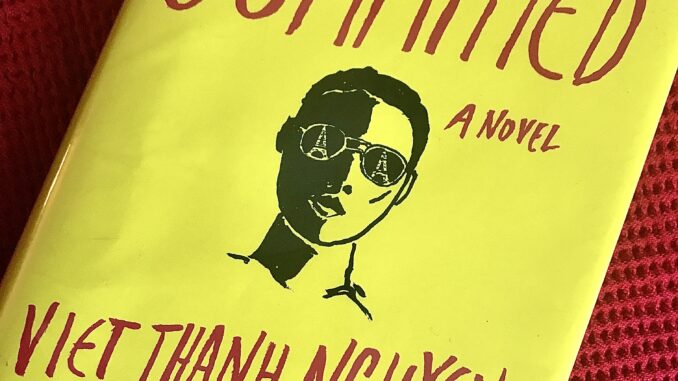
By Viet Thanh Nguyễn
Pulitzer winner of The Sympathizer
Hardcover, 345 pages, 2021.
Grove Press (Grove Atlantic)
I didn’t read The Sympathizer (2015) which won a Pulitzer, so I was curious to read this sequel.
What do you do when your first novel wins a Pulitzer? Anything you want.
Viet discards quotation marks, so dialogues are part of sentences. Then his characters lambast colonizers, capitalists, statesmen, torturers, sadists, sexists, racists, and religion.
It begins with people fleeing on a boat, enduring the harsh elements, hunger, raiders, and death—the condition of the oppressed.
“I was not a boat person unless the English Pilgrims who fled religious persecution to come to America on the Mayflower were also boat people.”
The reeducated Spy arrives in Paris and adopts the lounging culture of drinking, hashish, and l-o-n-g political commentaries on colonizers, colonists, and immigrants. It moved so slow that by page 21 I was ready to abandon it.
But then Viet’s articulate anger amused me.
“The American Way of Life! Eat too much, work too much, buy too much, read too little, think even less, and die in poverty and insecurity…Don’t you see that’s how the Americans take over the world?
Such clever lines too. “For someone who never said anything, God certainly spoke to a lot of people” and “the great conflict between communism and democracy, which was simply a code word for capitalism”.
He snarkily describes the mundane: streets “were narrower than the average French mind”; “Aryan automobile”; foie gras “like many delicacies, was salted with misery”; and seminal work —why not vaginal?
As a spy book, shorter slow scenes would’ve made this more suspenseful, instead of a Beckett diatribe.
Viet is an English Professor at the University of Southern California. He came to the US as a refugee. His parents ran one of the first Vietnamese grocery stores in San Jose. Viet graduated from UC Berkeley.
Aside from the Pulitzer, The Sympathizer gained him many awards like the MacArthur Genius Grant, Guggenheim Fellowship, and the Carnegie Medal for Excellence in Fiction. In 2020, he became the first Asian American and Vietnamese American to join the Pulitzer Prize Board.
